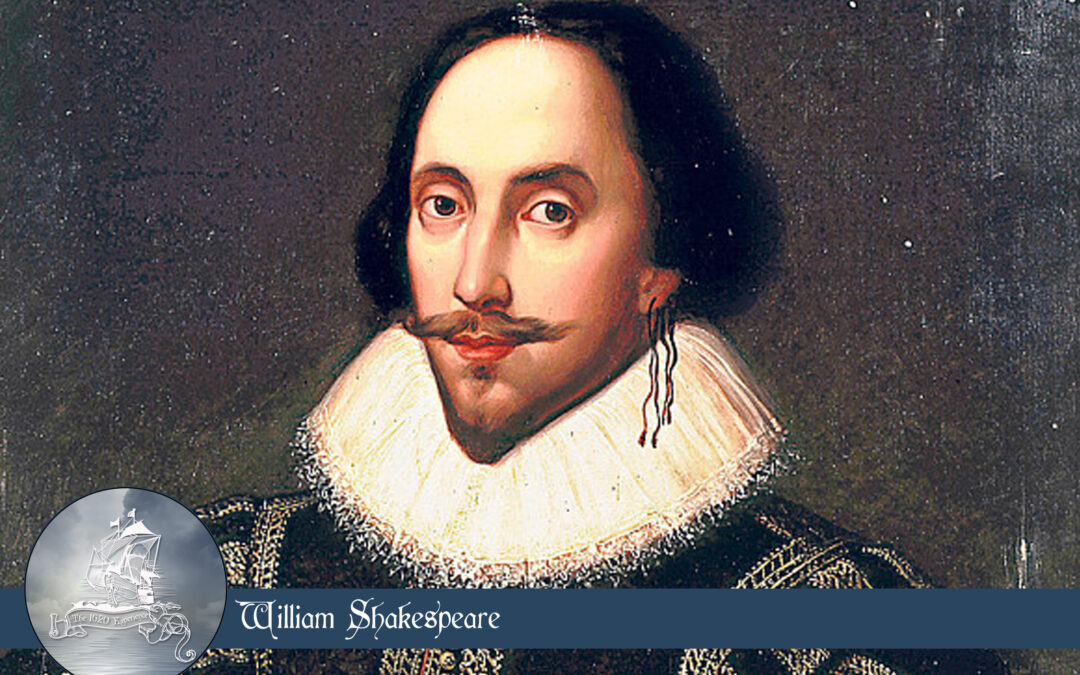Unless you’ve seen a film like “Monument” with Kirk Cameron, you probably don’t know much about the Pilgrims and why they matter to American culture and liberty. As we continue with our series of articles and blogs, we welcome Cassidy Cash of “That Shakespeare Life” to add context to the European world of the Pilgrims which was critical to shaping their faith, their convictions and their actions.
It’s All About Character
Whether you are a student of history or the arts, this much is certain: Shakespeare’s perspective on English culture sums up a lot. From his biting satires and comedies to his poignant tragedies and dramas, the Bard’s one common theme was the consequences of character or its lack. It is precisely this skewering of character – framed with his talent for plots, subplots and poetry – that gives subtext to the culture the Pilgrims sought to escape long enough to reform.
Known as Separatists, the Pilgrims wanted to abandon English and the official church in favor of religious freedom and self-governance. The Puritans, with whom they are often confused, wanted to remain in England and reform the Church from within. Puritans dressed in dark, conservative clothing, monitored church attendance and tithing, and had a long list of rules they demanded other Christians and parishioners adhere to in the name of piety and good morals. They were the self-appointed police of the Church of England, and to those with differing opinions – insufferable.
Separatists wanted to separate from the Church and the Puritans. They wanted to wear colorful clothing, worship God without restrictive orthodoxy and rules, give generously and live without someone watching over their shoulder. Pilgrims and Puritans disagreed with each other, but in many cases they were still respectful of each other.
Separatists wanted to live quiet lives of Godly character. Live and let live as it were. Puritans were much more outspoken and contrary, attempting to reorder civilian life as well as religious life. They were so pronounced in their efforts that all of England had to contend with them. Including William Shakespeare.
Good Character Endures
There is much good the Puritans did with their passionate efforts to reform English culture and the Church of England. But much of their work was built on the foundation that the Separatists established with their sacrifice and fortitude. The Puritans came 10 years after the Separatist Pilgrims, who were already established and flourishing by that time.
But by the time the Puritans joined the Pilgrims, and trade with England was prospering, the core values of the Separatists had taken root in America. Their willingness to live and let live, to be at peace with all men as possible, and to treat others with dignity and justice had created the platform from whence trade could prosper and families could flourish. Their willingness to create and uphold compacts with non-Separatists and Native tribes enabled them to succeed where others failed. They came to bring values to new shores in hopes that they could then bring those values back to England. But they knew that without liberty and self-governance, that would not be possible.
We hope that you will join us on the journey to not just discover the truth about these courageous men and women, but to help us spread the word. The values of the Pilgrims built America. And remembering those values will help us restore America.
Knowledge is power. Truth is more powerful still.
Learn more about the culture that created the Pilgrims: Did Shakespeare Know About Puritans?
Learn why Sam Sorbo is helping promote The 1620 Experience.
Help us make the miniseries for those who prefer to watch than read: Donate to The 1620 Experience
Beth Vickers is the Executive Producer of “The 1620 Experience.”

Recent Comments